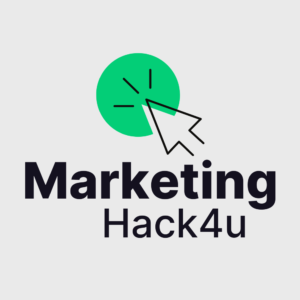As the world moves further into the realms of technology and more specifically into the future digital landscape of 2025 tools have emerged as the framework for any successful e-commerce business. Given the expansion of online businesses and customers’’ demands, one can state that such support tools must be strong, fast-acting, and, of course, smart. Something that the current and the future e-commerce environment calls for is not just generic customer service but prescribable, value-adding, efficient, and integrated services that will turn the occasional shopper into a dedicated consumer.
Whether organizations are starting as small businesses, or developing into multi-national companies, they are beginning to realize that incorporating high-quality customer support systems is no longer a luxury – it is a necessity. These tools are not seen as simple appendages to a marketing communication strategy but as potent weapons for creating and enhancing brand equity. In this ultimate guide, you will learn about the 10 most popular customer support software that will transform customer service in the e-commerce environment of 2025.
What are the Customer Support Tools?
Support tools are complex software solutions aimed to support communications between a business and its customers, as well as track and solve various issues connected with the usage of a company’s products or services. Tick a wide array of features into their packages, including ticketing systems, live chat, knowledge base, AI chatbot, and analytics console for efficient customer support services. One of the standout innovations in this space is the AI voice chatbot, which can revolutionize customer service by automating call routing and offering multilingual support, making it easier to connect with customers worldwide.
Benefits of Customer Support software:
- Enhanced Customer Satisfaction: Reduces response times and increases service delivery which has a direct impact on customer satisfaction.
- Efficient Query Management: This not only makes the handling and solving of customer inquiries much faster.
- Multichannel Communication: Enables customers to get support through various channels without much struggle.
- Automated Workflow Processes: Eliminates manual work and improves business productivity.
- Real-time Performance Analytics: This enables real-time analysis that allows users to control and enhance support efficiency.
- Scalable Support Infrastructure: This can meet expanding customer demands with a steady preservation of service standards.
- Personalized Customer Interactions: Improves customer satisfaction by providing specific assistance according to customer’s choices.
Comparison Table
| Tool Name | Why Best | Free Plan Available | Ease of Use |
| Pipedrive | Combines sales management and CRM tools; excellent for tracking customer interactions. | No | Easy |
| Zendesk | Advanced ticketing system and multi-channel support; scalable for businesses of all sizes. | No | Intuitive |
| MailChimp | Multifaceted customer experience platform; excels in email-based communication. | Yes | User-friendly |
| Olark | Real-time chat with automation tools and CRM compatibility for B2C e-commerce websites. | No | Easy |
| LiveAgent | Comprehensive customer support suite; integrates ticketing, live chat, and social media support. | No | Moderate |
| Freshdesk | Integrates multiple communication channels with robust automation for enhanced efficiency. | Yes | User-friendly |
| Slack | Effective for real-time team communication and customer support via dedicated channels. | Yes | Easy |
| Help Scout | Tailored customer service experiences with email and live chat support. | No | Easy to moderate |
| DevRev | AI-driven support with product development insights; ideal for tech-savvy startups. | No | Moderate |
| Buffer | Social media engagement-focused tool; handles customer interactions across platforms. | Yes | User-friendly |
Top 10 Best Customer Support Tools
1. Pipedrive
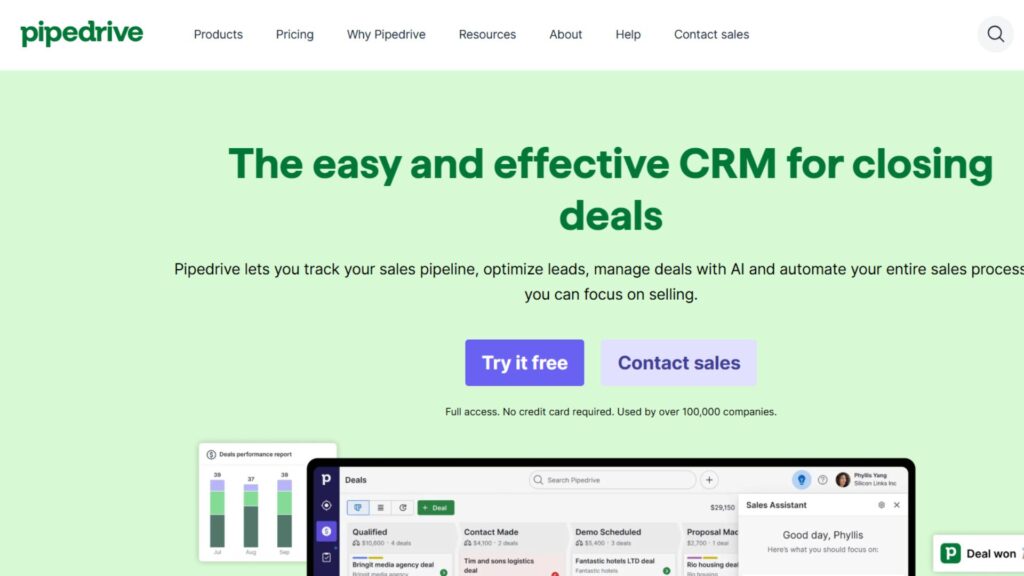
Customer support in Pipedrive is a rather unorthodox mix of sales management and customer relationship tools. Its visual pipeline interface enables e-commerce companies or shops to monitor customer interactions, the support tickets they make, and the follow-up processes. Its major advantage is in its integration aspect giving insights into customer relationships from the sales and support perspective.
Key Features:
- Sales pipeline visualization
- Team collaboration tools
- CRM integration capabilities
Pros:
- Easy to use
- It is very useful for handling the relations with the customers.
- Flexible pricing options
Cons:
- This is complemented by very few dedicated support features.
- Originally established with the primary goal of sales management.
- May not be enough to provide all the necessary tools for those people.
Ideal For:
- Organizations in the sales-orientation e-commerce sector may require a comprehensive CRM system.
Pricing:
- Essential: $12 per seat/month
- Advanced: $24 per seat/month
- Professional: $49 per seat/month
2. Zendesk
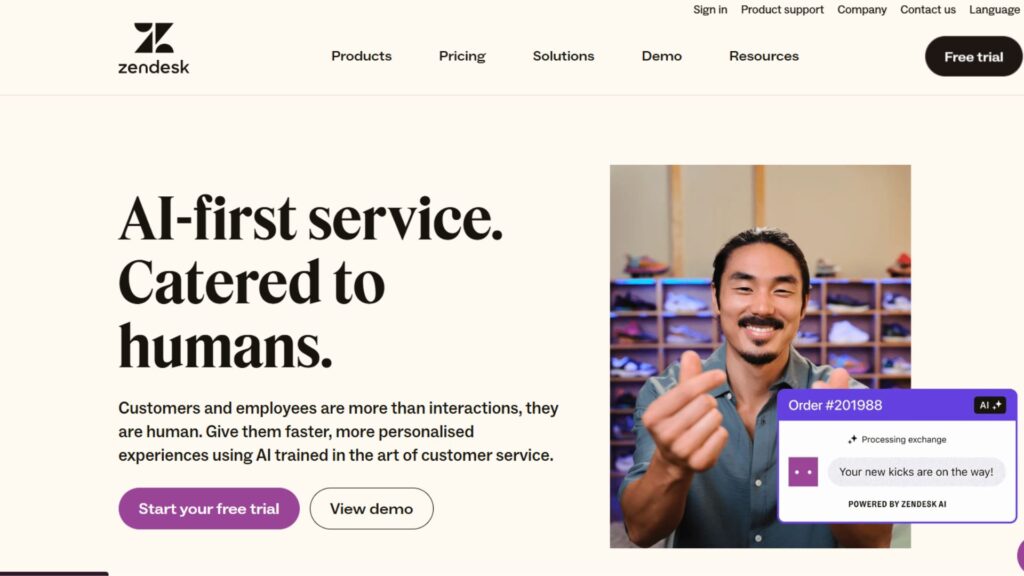
Zendesk remains one of the giants of the customer support software market and it offers a range of customer relations products. It has an extensive feature set that enables e-commerce businesses to benefit from its powerful ticketing systems, Live Chat capabilities, and vast knowledge base. Zendesk has the advantage where providing individual customer service across various departments and at the same time keeping the employees’ productivity high.
Key Features:
- Advanced ticketing system
- Multi-channel support
- Tunable automation processes
Pros:
- Extensive integration options
- Responsive, meaning it can be adapted to small, medium, and large-scale business operations.
- Intuitive user interface
Cons:
- Higher pricing for small business
- Lack of reports in first-level plans
- Potential complexity for the learners
Ideal For:
- Those online businesses that are mid-sized or large and need a powerful and scalable customer support solution.
Pricing:
- Support Team: $19 per agent/month
- Support Professional: $55 per agent/month
- Support Enterprise: $115 per agent/month
3. MailChimp
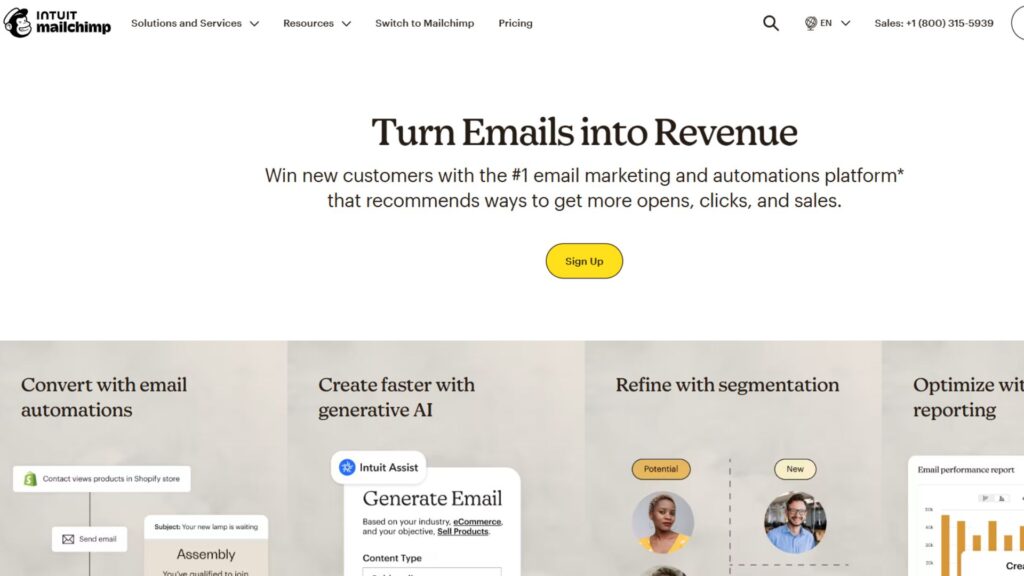
It has gone from being an email marketing tool to being a comprehensive customer outreach and support system for online stores. However, as the key competence, MailChimp has recently turned into a multifaceted customer experience platform that allows the online stores not only to manage the emailing communications with users but also segment the users, create more personal support messages, and, thus, strengthen the relations with the customers.
Its user-friendly interface, along with its strong capacity to segment customers, makes it a perfect instrument for companies interested in customizing their customer service treatment.
Key Features:
- Targeted viewership
- Able migration support
- Customer success management should not be confused with customer support.
Pros:
- Good compatibility with other forms of email marketing
- Affordable for small business organizations
- User-friendly interface
Cons:
- This is only possible through email support.
- It has no sophisticated ticketing systems in place.
- Often, may lack some tools that can enable it to support the function completely.
Ideal For:
- Specifically, SME e-business organizations rely on electronic mail for customer communication and promotional activities.
Pricing:
- Free plan available
- Standard: $575 for 12 months
- Premium: $11,500 for 12 months
4. Olark
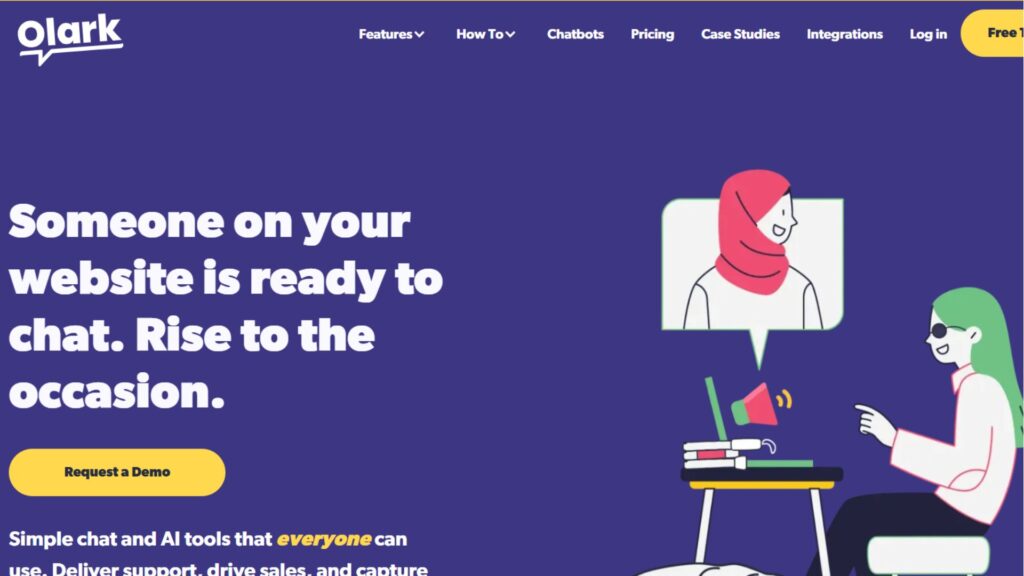
Olark is a set of live chat services that are developed for e-commerce websites exclusively. The simplicity of the service lets businesses directly interact with website users in real time, which can improve the percentage of sales and customer satisfaction. Another advantage is automation tools, comprehensive analytics, and compatibility with CRM that turn the platform into a wide-scope customer support tool.
Key Features:
- Real-time chat capabilities
- Transcripts of the actual conversation that can be searched
- Website visitor tracking
Pros:
- Easy website integration
- Affordable pricing
- Quick and responsive support
Cons:
- Currently, it is only available in the form of live chat.
- Basic reporting features
- Some may need other tool sets to provide full coverage.
Ideal For:
- B2C e-business organizations emphasize instant communication with customers.
Pricing:
- Olark Standard: Starting at $29 per month
5. LiveAgent
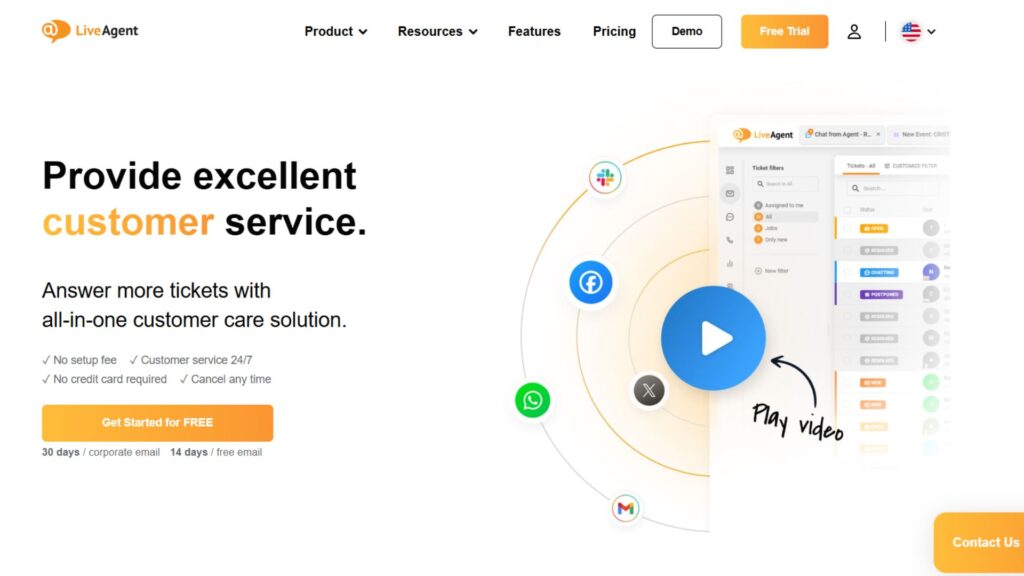
LiveAgent is a complete customer support software created primarily for use in online stores. Its exceptional live chat software incorporates help desk features, social networking customer support, and ticketing into a single system. Due to the tool’s integration at the center of customer transactions, the overall time businesses take to attend to their customers’ concerns across various touchpoints is reduced significantly, thus improving customer experience and satisfaction.
Key Features:
- Single pane of glass for communication
- Real-time chat capabilities
- Comprehensive access controls
Pros:
- Affordable pricing structure
- Fast and responsive live chat
- Extensive integration options
Cons:
- Difficult user interface for the users
- Limited customization options
- Lacks familiarity with new users
Ideal For:
- Any organization with an expanding e-commerce presence requires an all-encompassing, multiple-channel support platform.
Pricing:
- Small Business: $9/agent per month
- Medium Business: $29/agent per month
- Large Business: $49/agent per month
- Enterprise: $69/agent per month
6. Freshdesk
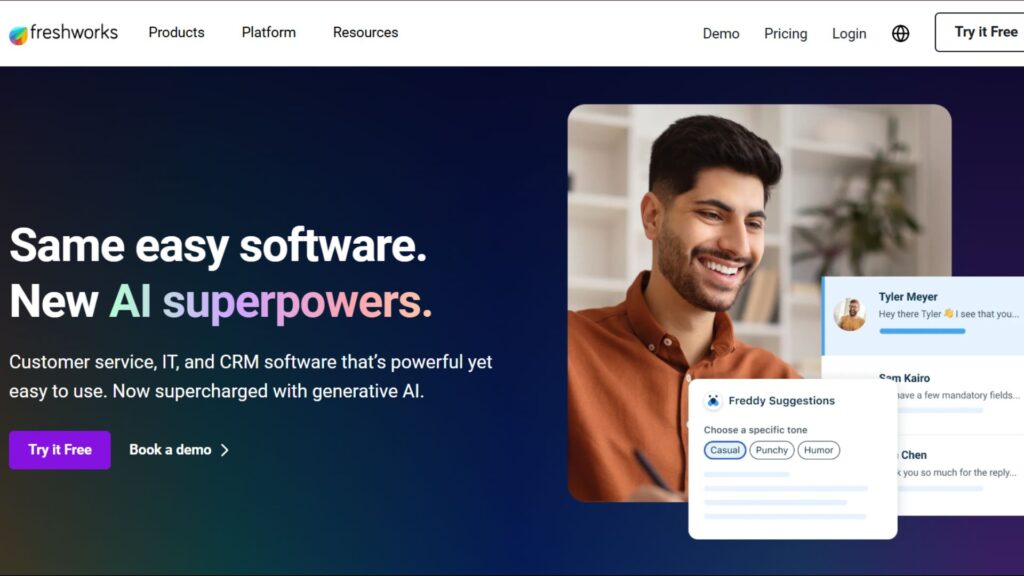
Freshdesk has become one of the most important cloud-based customer support solutions for e-commerce companies. It integrates various systems of communication such as e-mail, chat, phone, and social networks, which makes it convenient for small and big companies. To support the needs of its audience, the platform provides a rich set of automation options, a ticketing system, and tools for team cooperation that aim to increase the performance of a support team and provide customers with an outstanding experience.
Key Features:
- A high level of automation
- Self-service knowledge base
- Full disclosure and analysis
Pros:
- There is a more basic version available for those teams that are not very large.
- Advanced automation features
- User-friendly design
Cons:
- May prove costly, especially for larger teams
- Restricted customization options within the basic packages-AHT
- May need extra links to work completely
Ideal For:
- Companies are in search of effective and powerful software with robust automation to handle numerous customers’ requests.
Pricing:
- Free
- Growth: $999/agent/month
- Pro: $3,599/agent/month
- Enterprise: $5,699/agent/month
7. Slack
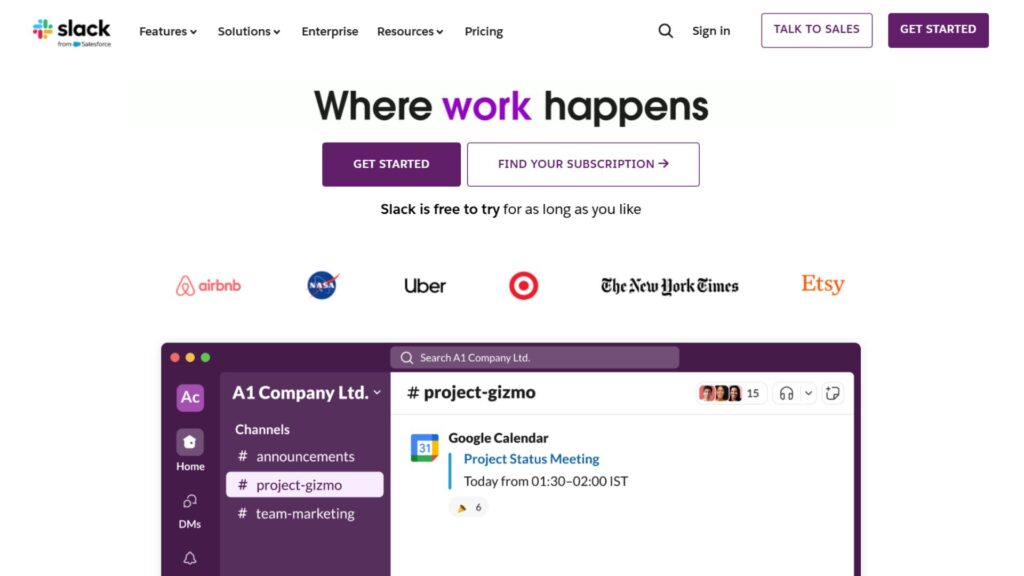
Even though Slack’s primary purpose is a communication application, it has become a rather effective customer support solution when used with the help of helpdesk services. The channel-based communication model that is used in this framework helps e-commerce teams respond to real-time customer queries effectively and ensures good communication within the teams.
It is entirely possible to make vitriol-dedicated channels needed for distinct customer support needs; therefore, the platform is a useful innovation for today’s teamwork.
Key Features:
- Real-time messaging
- Multimedia support
- Manifold third-party integrations
Pros:
- Real-time team collaboration
- Quick compatibility with top third-party help desk software.
- Easy-to-use interface
Cons:
- Not a simple customer support application
- Need for additional integration stacks to fully support the features
- May become quite intricate in case of the existence of several communication channels.
Ideal For:
- Modern companies and organizations rely on information technologies and require efficient cooperation of their teams and fast problem-solving.
Pricing:
- Free
- Pro: $245.25/month
- Business+: $422.10/month
- Enterprise Grid: Custom pricing
8. Help Scout
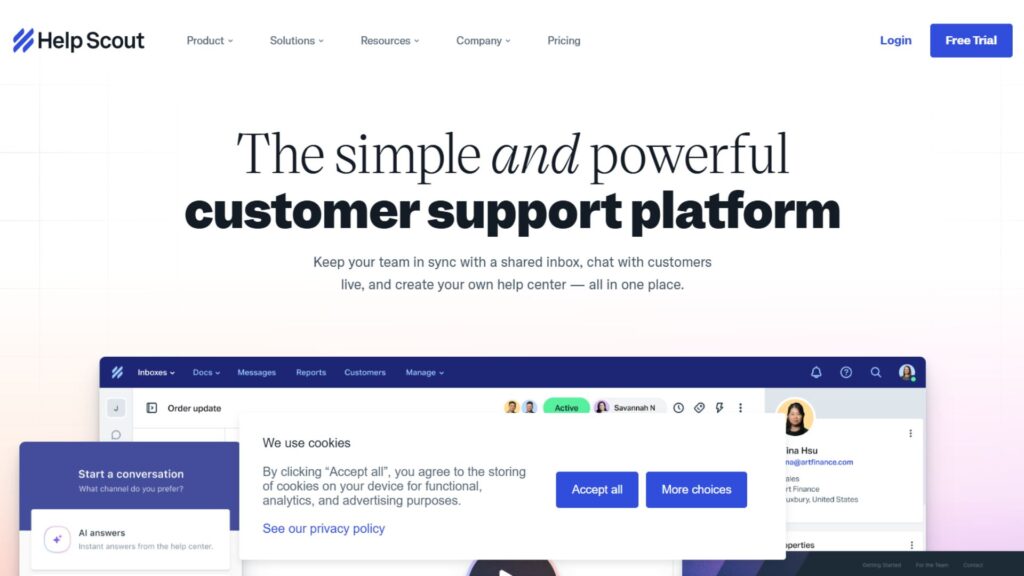
Help Scout focuses on providing tailored client service experiences for companies that sell products online. The specific idea of the platform is to build effective e-mail, live chat, and knowledge-based customer communication. It allows support managers to organize the workload of the support teams and provides customers with fast and uniform solutions to their cases.
Key Features:
- AI-assisted support
- API integration capabilities
- Self-service customer portal
Pros:
- Well suited for small to medium-sized enterprises
- Easy setup and implementation
- Excellent customer service
Cons:
- Limited advanced features
- It doesn’t have live chat integration out of the box
- It may not be as effective when applied to large-scale enterprises
Ideal For:
- Founded online boutiques, mom-and-pop shops, and mid-sized companies that require expert and cost-effective solutions to their customer service needs.
Pricing:
- Standard: $22 per user per month
- Plus: $44 per user per month
- Pro: $65 per user per month
9. DevRev
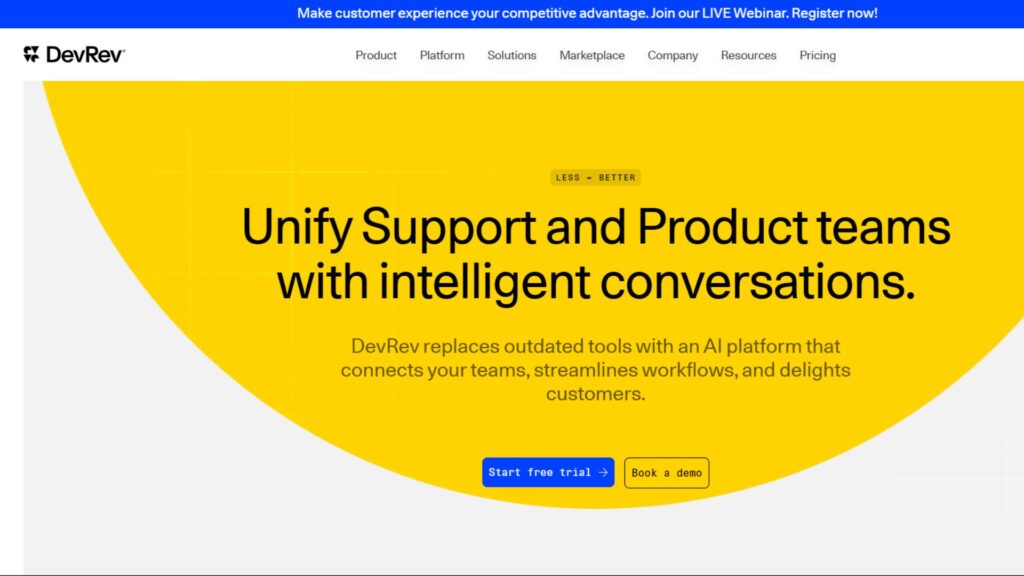
DevRev is an innovative solution that occupies the intersection between customer service and product development. This new CRM is designed for e-commerce sites that want to be more discerning in the way they interact with their customers. Utilizing the power of cutting-edge artificial intelligence, DevRev helps companies learn more about their customers, turning support conversations into product innovation sessions.
Key Features:
- AI-driven support automation
- Third-party integrations
- Omnichannel support competency
Pros:
- Integration of the development and support team
- Highly customizable workflows
- Robust analytics capabilities
Cons:
- Very few third-party partnerships
- The above analysis also shows that the costs for the novice are higher than those for the experienced user.
- May require additional configuration for smaller businesses
Ideal For:
- Young innovative e-commerce startups and software service providers that require a robust customer support solution with deep product development capabilities.
Pricing:
- Starter: $19.99 per user/month
- Pro: $59.99 per user/month
10. Buffer
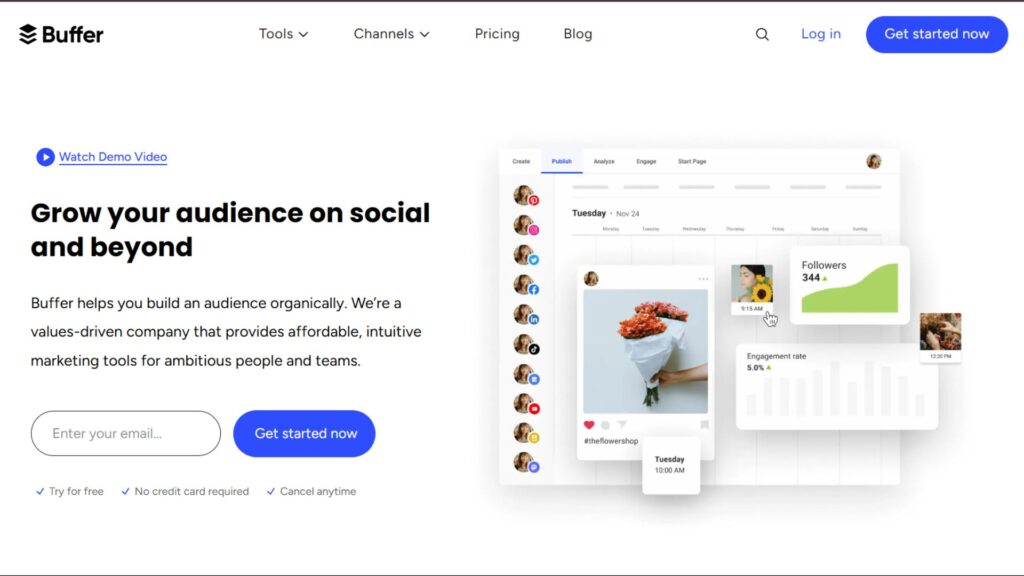
Although initially a social media scheduling tool, Buffer has evolved features that empower the e-commerce venture to tame customer engagement. The main advantage is that with its help, companies can respond to customer complaints on different social networks at the same time. The posting and analysis tools assist organizational pages in providing regular dedicated customer service on social media platforms.
Key Features:
- Social media scheduling
- Team management capabilities
- Comprehensive analytics
Pros:
- Affordable by small business companies
- Easy-to-use interface
- Perfect for handling social media engagement
Cons:
- A few customer support aspects
- No dedicated ticketing system
- As we know it is mainly oriented to social media platforms.
Ideal For:
- Companies with an active social media account looking for all-in-one customer outreach solutions.
Pricing:
- Free plan available
- Essentials: $5/monthly
- Team: $10/monthly
- Agency: $100/monthly
Best Practices for Integrating Customer Support Tools
- Conduct a Needs Assessment: Before integrating the customer support tool, it’s necessary to assess the specific needs of your business and customers. This is very effective for assessing the volume and types of customer inquiries, preferred communication channels, and performance expectations.
- Seamless System Integrations: The customer support tool must integrate with the existing systems, such as CRM software, sales platforms, and marketing automation tools. For this, a compatibility check needs to be done so the data is synchronized across all interfaces.
- Provide Comprehensive Team Training: Good, effective new support tools can only be implemented with the effective training of your team. Provide them with thorough training covering all features and functions of the tools.
- Continuously Monitor and Optimize Performance: Once the tools are integrated, regular monitoring is key to optimizing performance. Track customer satisfaction metrics, response times, resolution rates, and other KPIs.
- Implement a phased rollout strategy: Instead of deploying all the new customer support software at once, implement a phased rollout strategy.
Future Trends of These Tools
- Advanced AI and Machine Learning Integration: With AI and machine learning, tools will learn from their interactions, know what is required, and respond accordingly.
- Predictive Customer Support: The use of data analytics and AI to predict potential issues in customers before they become problems.
- Hyper-personalization: Increasing demand for hyper-personalization in customer care. It is the tailoring of the support experience based on individual preferences, behaviors, and past interactions with customers.
- Enhanced Omnichannel Experience: Customers expect to experience seamless outcomes across multiple channels, which may include phone, email, chat, social media, and messaging applications.
- Real-Time Translation Services: Become yet more relevant in customer support as businesses grow globally.
Conclusion
In the context of the constantly changing e-commerce of 2025, customer tools do not act as they used to. They are no longer mere backstops that are in place to serve a complementary role but actual value drivers that can help tip the balance in favor of a firm. The right tools will carry customer interactions from being mere business transactions to relationships. Tools like the above customer support are investments made by business organizations in smart, flexible, and complex technology to satisfy today’s ever-demanding consumer market.
What these do is more than just to solve problems or depart after establishing relationships with customers or gain insights but to also maintain on progressing. It’s no longer focused on the response to issues but the avoidance of them, tailor-made interactions, and building trust and advocacy. Customer support software will of course evolve in assisting the future of technology and become even smarter, predictive, and in line with customer journey mapping.
FAQs
1. What does make a great customer support tool?
A complete platform that is multichannel supported, AI-enabled, analytics-powered, and easy to integrate.
2. How do customer support tools help improve business performance?
By reducing response times, improving customer satisfaction, and giving actionable insights.
3. Are customer support tools expensive?
Pricing depends on the size of your business, with free and affordable options for small businesses. Many tools offer scalable solutions designed for small business needs.
4. How often should customer support tools be updated?
It should be updated regularly to capitalize on the latest technological developments and features.

